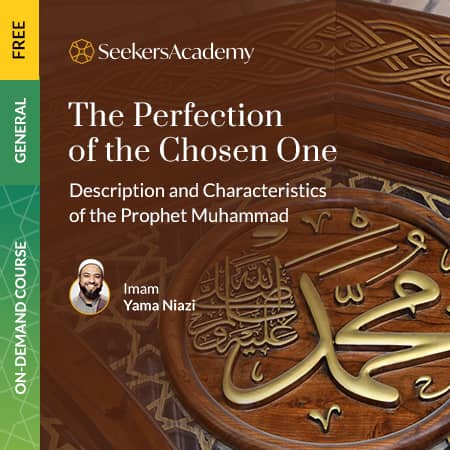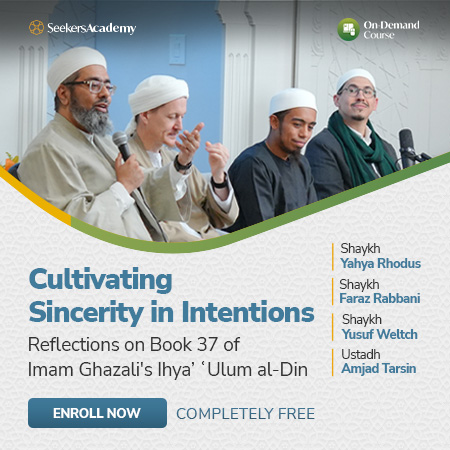
This three-part seminar where Shaykh Faraz Rabbani will help us explore Imam Ghazali’s teaching on speech, deeply rooted in the Quran and Sunna.
Through a structured study of Ghazali's work, attendees will engage with the Islamic ethical framework on positive communication, learning how to align their speech with Quranic teachings and the teachings of the Prophet (peace and blessings be upon him)
This series is a journey into understanding the profound impact of our words, as guided by the rich Islamic scholarly tradition. The Messenger of Allah (peace and blessings be upon him) said, “Whoever believes in Allah and the Last Day should say the good or remain silent.” [Bukhari and Muslim]
- Teacher: Shaykh Faraz Rabbani
This Book is an unmatched presentation on how to change our condition—our Self (nafs) and Character (akhlaq), purify it, and make it virtuous, pleasing, and beloved to Allah—through inculcating Prophetic habits and perfections.
- Quranic and Prophetic Foundations**: Insight into the Quranic verses and Hadiths that underpin the positive, purposeful speech in Islam, as explained by Imam Ghazali.
- Awareness of Speech's Impact**: Knowledge of the types of harmful speech warned against in the Quran annd Sunna—and their effects on the individual and community.
- Skills for Ethical Communication**: The ability to apply Quranic and Hadith guidance to enhance the quality of daily interactions.
- Spiritual Growth through Speech**: An understanding of how disciplined speech can serve as a means to spiritual refinement and drawing nearer to Allah.


